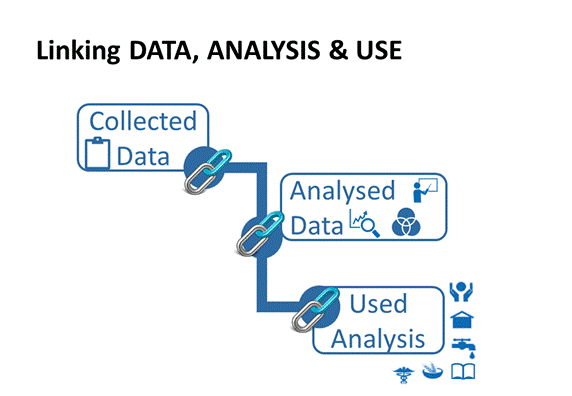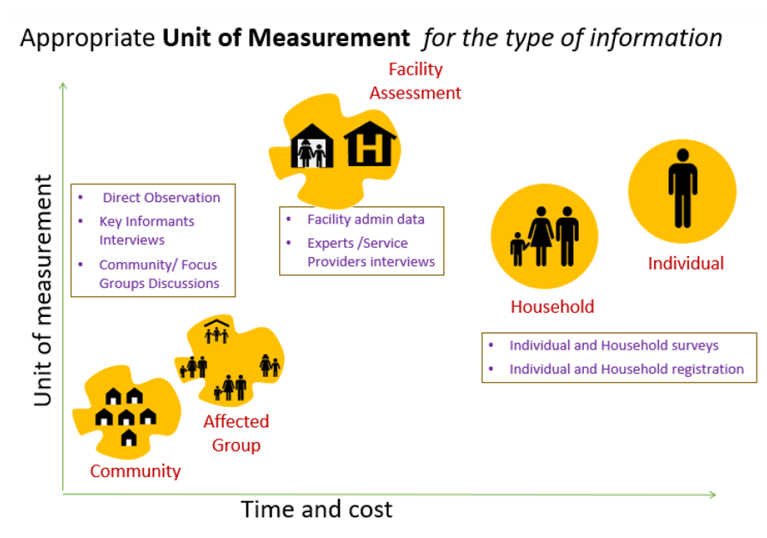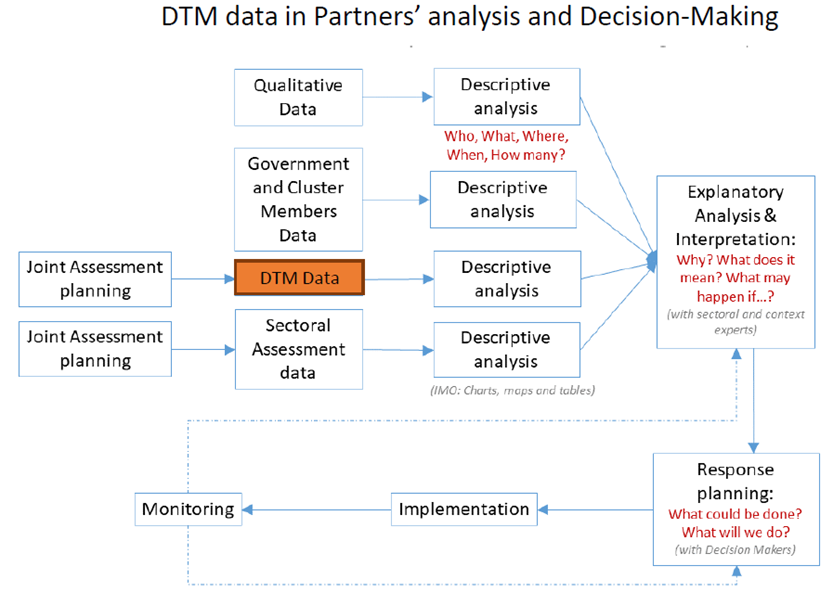Six fundamentals allow DTM and Partners to cooperate in ensuring data are useful and usable for humanitarian response:
1. Cooperation between DTM and Partners is a shared responsibility that starts from the planning phase.
2. Time pressure can limit cooperation, especially in the beginning of a response; to take into account this urgency, DTM can develop a plan to progressively reach out to new Partners over time.
3. DTM and Partners have clear roles and responsibilities at each step of the process. Some responsibilities can be defined at global level as common across responses, while others should be agreed upon in country, depending on the situation, resources and coordination structures in place.

4. At all times the link between collected datasets, their analyses and their use for humanitarian response should be clear to DTM and Partners.

5. Partners have a variety of information sources at their disposal, including DTM, for analysis and response planning. This ensures that specific decision-making is based on data that can support it. A shared understanding of complementarities amongst different methodologies is critical for sound data analysis.

6. Data are collected with the purpose of being used for analysis and response.

